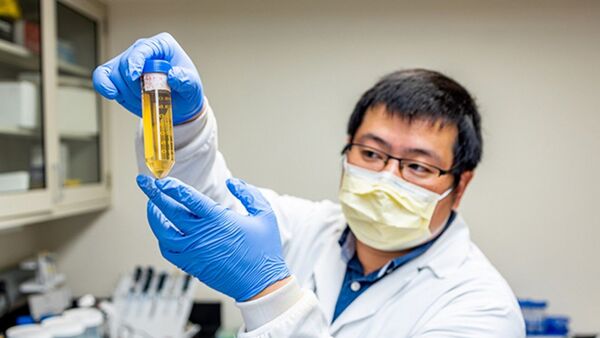The University of Pittsburgh announced in a Monday news release that an antibody component “10 times smaller than a full-sized antibody” proved useful in university scientists’ construction of a new drug for potential use as a therapeutic and prophylactic treatment against SARS-CoV-2, called Ab8.
The full study, “High Potency of a Bivalent Human VH Domain in SARS-CoV-2 Animal Models” is available in the peer-reviewed scientific journal Cell.
“Ab8 not only has potential as therapy for COVID-19, but it also could be used to keep people from getting SARS-CoV-2 infections,” study co-author John Mellors, chief of the Division of Infectious Diseases at the University of Pittsburgh and University of Pittsburgh Medical Center, explained in the release.
The other co-author is Xianglei Liu, a member of the medical school's Center for Antibody Therapeutics Laboratory. Researchers from the University of North Carolina at Chapel Hill, the University of Texas Medical Branch at Galveston, the University of British Columbia and the University of Saskatchewan assisted in evaluating Ab8.
“Antibodies of larger size have worked against other infectious diseases and have been well tolerated, giving us hope that it could be an effective treatment for patients with COVID-19 and for protection of those who have never had the infection and are not immune,” Mellors added.
The study tested the drug’s impact on mice and hamsters infected with the virus, as well as those not infected. Researchers found that the antibody component’s size increased the likelihood of it diffusing into tissues and subsequently neutralizing the virus.
“Importantly, it does not bind to human cells - a good sign that it won’t have negative side-effects in people,” the release emphasized.
“The COVID-19 pandemic is a global challenge facing humanity, but biomedical science and human ingenuity are likely to overcome it,” Mellors expressed.
“We hope that the antibodies we have discovered will contribute to that triumph.”




